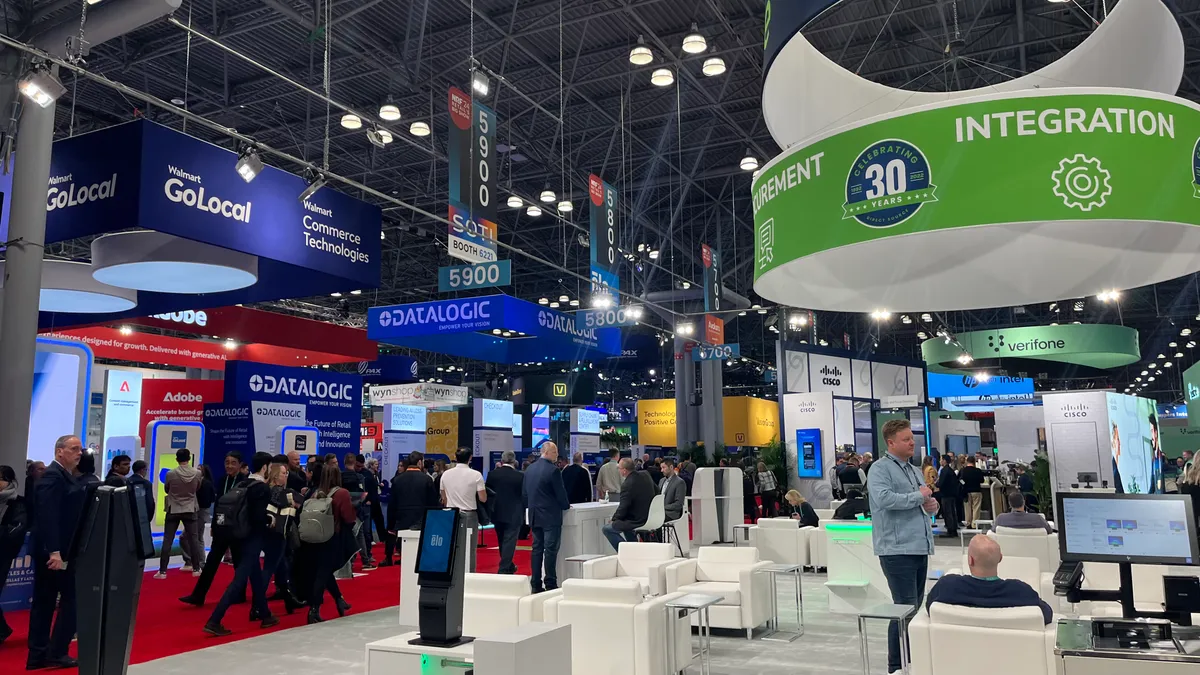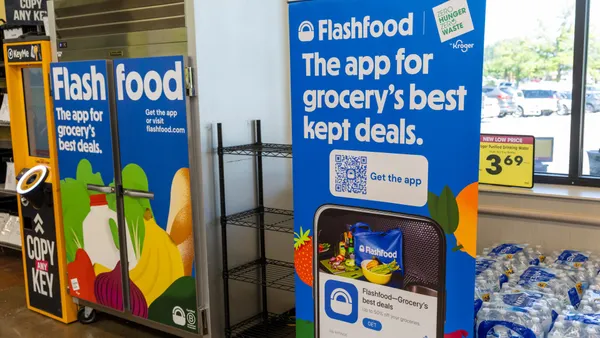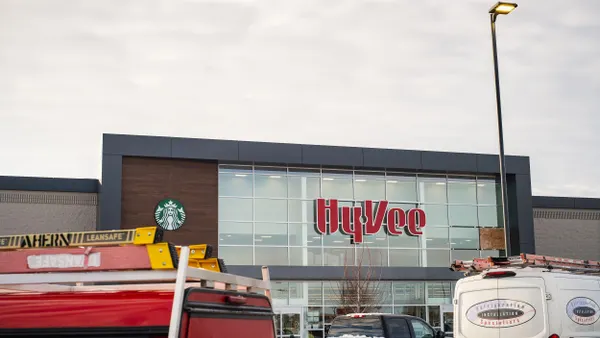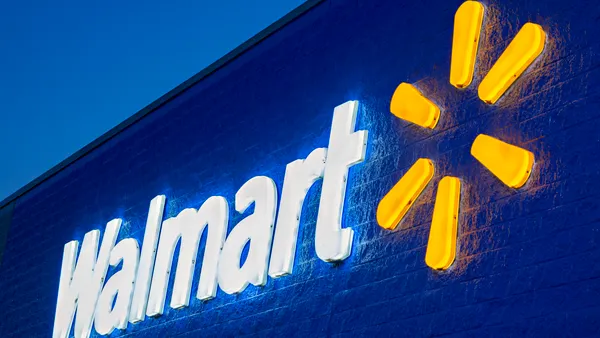With two large exhibition floors and its first-ever Foodservice Innovation Zone, the National Retail Federation’s annual conference this week in New York City allowed hundreds of vendors — from brand-new startups to large, well-known players — to highlight their offerings to retail leaders.
Dozens of companies that provide technology in the grocery space unveiled updates during the show, sharing the news in announcements and one-on-ones with Grocery Dive.
Some of the updates included new or expanded partnerships between vendors and retailers, including fresh grocery platform Invafresh expanding its work with Stew Leonard’s to include recipe management capabilities.
Diebold Nixdorf, known for making cash-dispensing machines for banks, showed off its latest AI solutions to reduce shrink at self-checkout — a significant pain point for retailers right now — and make it easier for consumers to purchase items like fresh produce without barcodes and age-restricted items.
Here’s a recap of some of the top grocery-related technology updates from the conference.
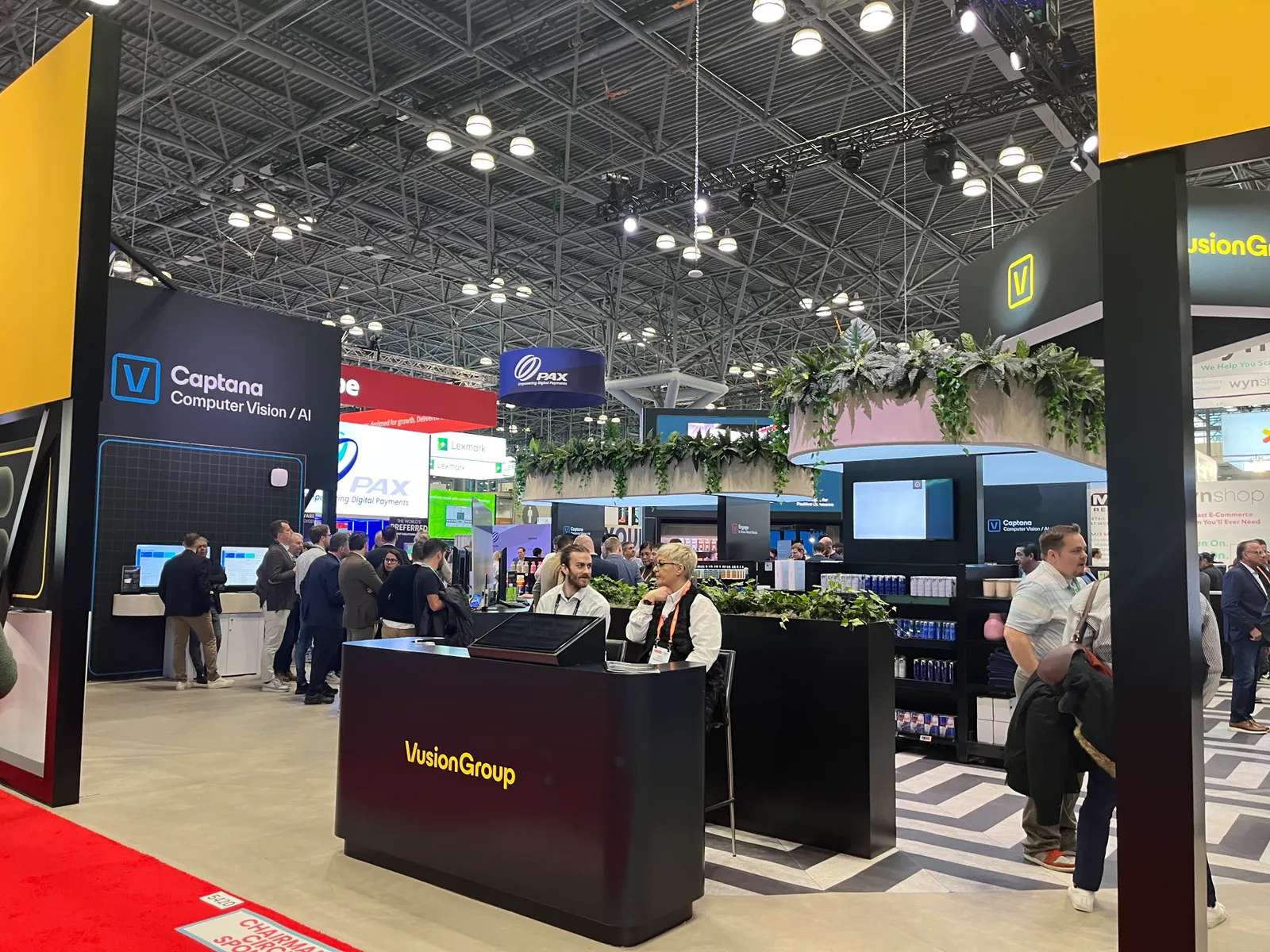
VusionGroup: The newly renamed SES-imagotag unveiled EdgeSense, a digital shelf system that includes a battery and radio on the rail to support electronic shelf labels as well as sensors, like ones measuring air quality and temperature and humidity. EdgeSense allows for battery-less digital displays — meaning workers won’t have to change as many ESL batteries.
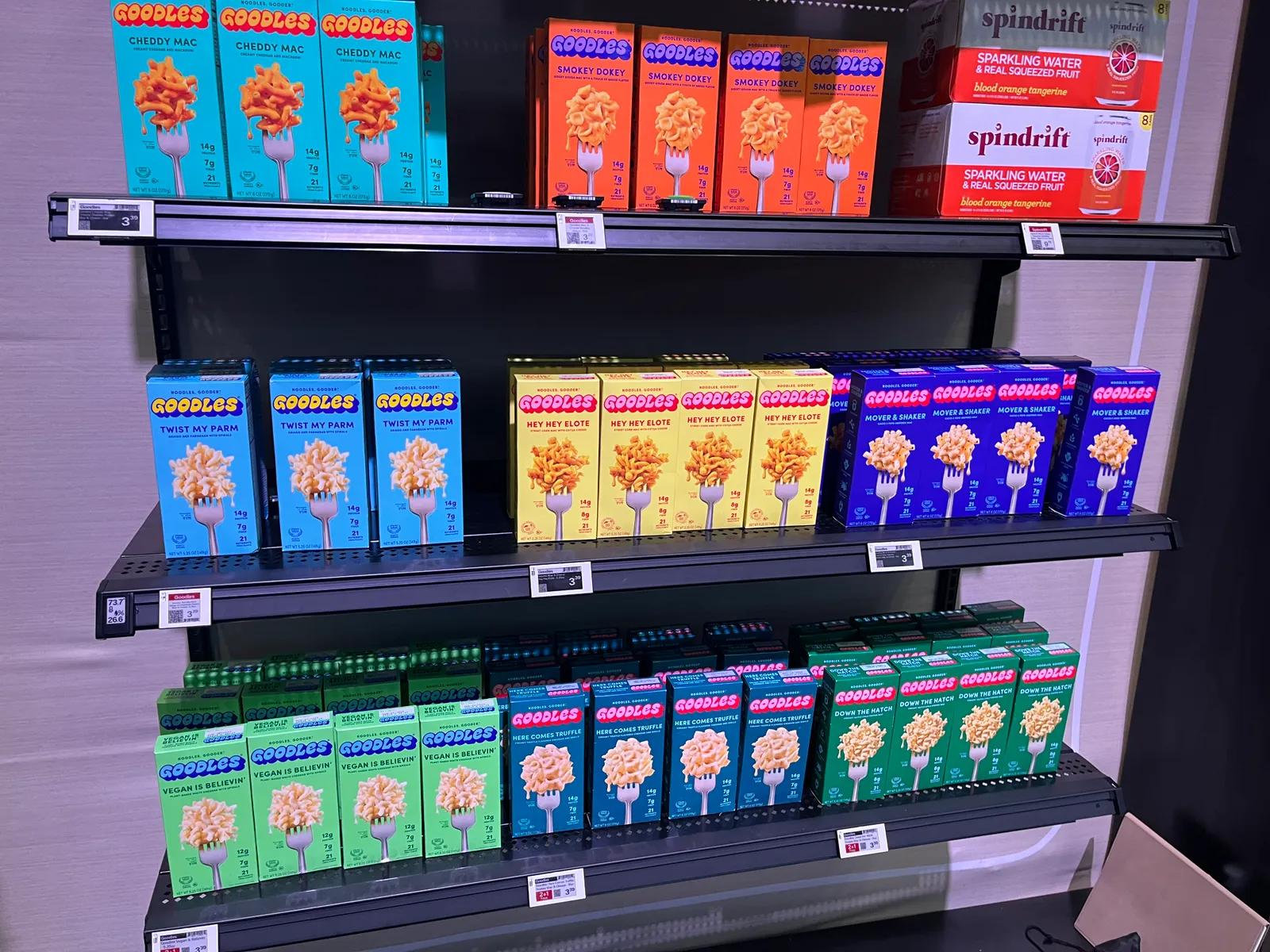
Brain Corp: The technology company rolled out its latest autonomous inventory scanning robot called Dane Air, which it built in collaboration with Dane Technologies. The robot uses sensors, shelf vision and RFID to capture inventory and has automated docking and charging capabilities. The company also announced a new AI-powered inventory analytics solution that can identify and address problems like out-of-stocks, price tag errors, misplaced items and promotional compliance issues.
SML RFID: The company unveiled its new Clarity Food offering to help grocers reduce food waste through food traceability, waste management, real-time visibility and best-before-dates tracking capabilities. SML said Clarity Food will help supply chain operators and grocers minimize out-of-stocks, streamline processes and reduce the risk of having expired products.
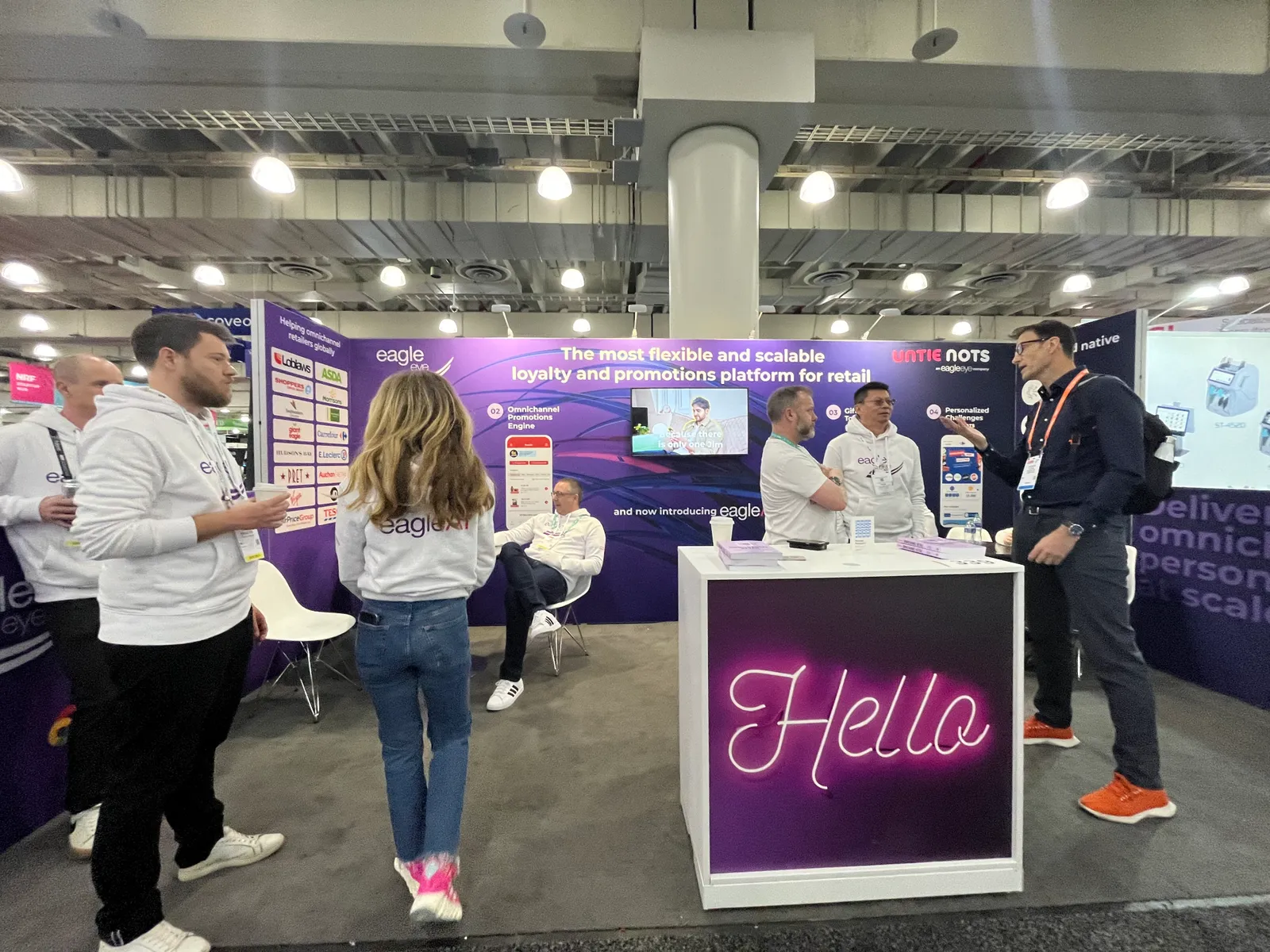
Eagle Eye: The retail technology company announced EagleAI, a new AI-powered retailer solution that uses grocers' existing customer data to create personalized promotions at scale. Instead of grocers having to create a variety of offers, EagleAI can build out a personalized selection that factors in customer data, product availability and offer parameters. Eagle Eye said EagleAI stemmed from its acquisition of Paris-based SaaS company Untie Nots in 2023.
Kwikkart: Founded in 2021 on the University of California, Berkeley campus, the startup debuted in the Foodservice Innovation Zone its AI-powered device that gets added to shopping carts to provide autonomous checkout for pickers and delivery drivers. After users connect the device to a mobile app, the device’s computer vision and AI verify that the correct items from a list are going into the cart. Users can then pay via app.
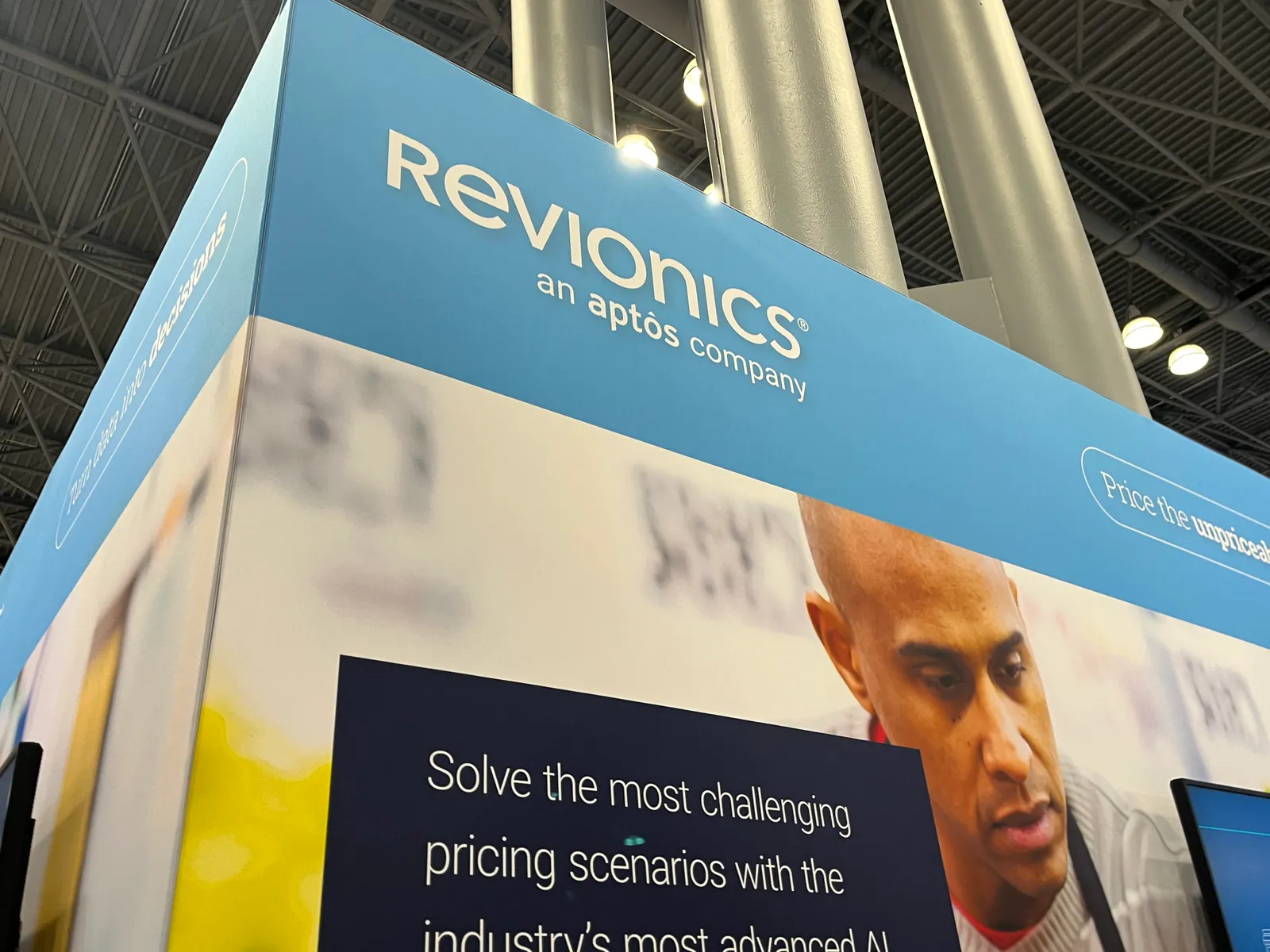
Revionics: The provider of retail pricing and analytics solutions, which is part of Aptos, showed off at NRF’s conference its new chatbot powered by generative AI. Retailers using Revionics’ intelligent pricing platform can ask the chatbot questions like, “Which products have the lowest elasticities in the cheese category?” and, “How does seasonality impact forecasts?” the company noted in a press release. Revionics said the chatbot will be available in the next software release, which is expected in the first quarter, and that additional investments in the chatbot will come throughout the year.
GK Software: The company, which provides point-of-sale installations in large department stores and convenience stores, debuted its new loyalty solution, GK Engage. The AI-supported offering gives customers personalized campaigns with relevant recommendations, targeted promotions and tailored offers that factor in their preferences as well as a retailer's current inventory and goals. Shoppers can access GK Engage “wherever they interact with the retailer” such as mobile apps, self-checkout kiosks and traditional POS systems, the company said.
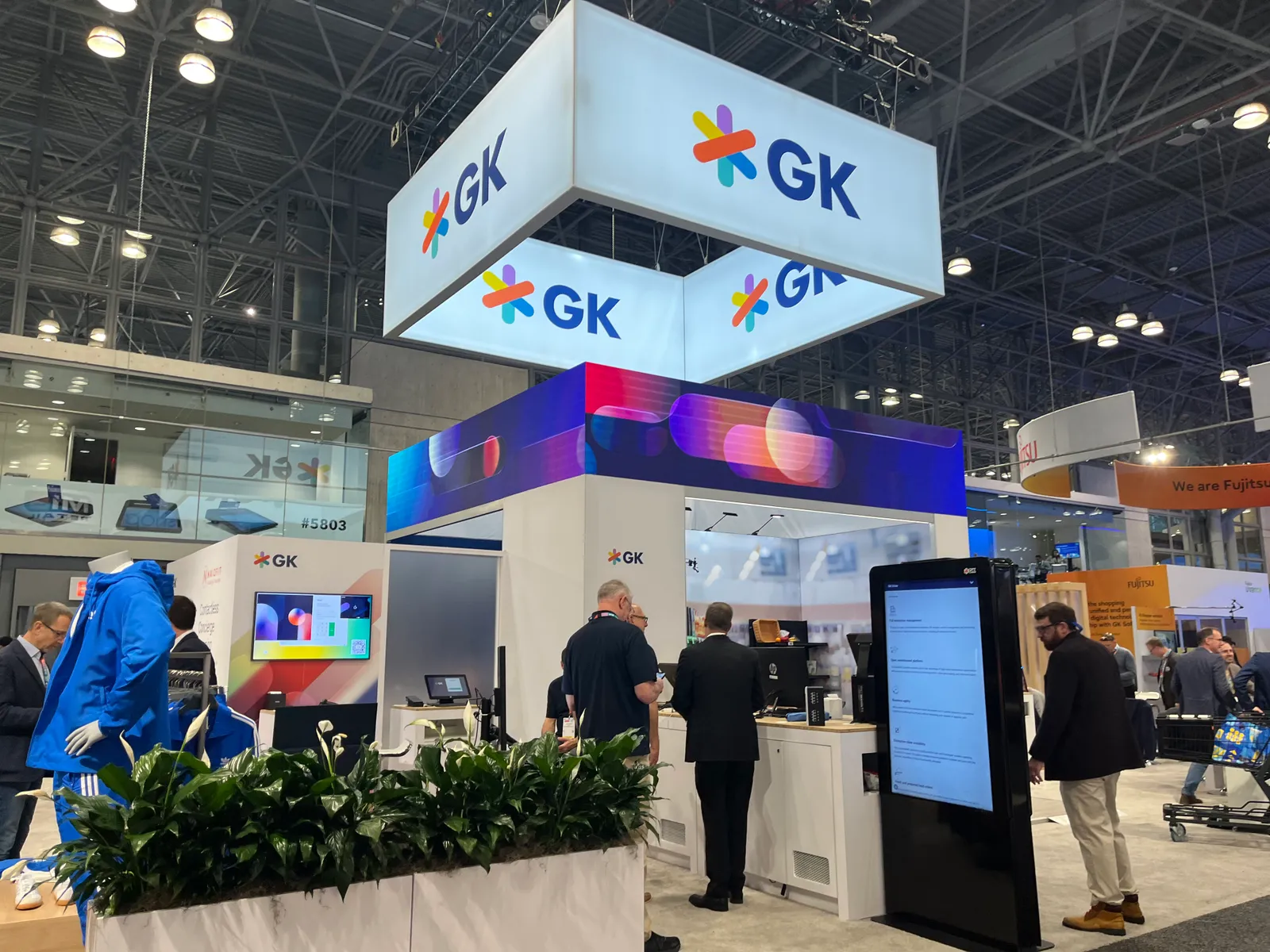
Diebold Nixdorf: The company showed off its various AI-assisted self-checkout solutions. Its newest one aims to combat shrink by using AI to identify and distinguish between different types of loss, such as theft, unintentional non-scans, scanning only one out of several items and paying for some items but leaving with more. The solution, which retailers can configure around triggers and alerts for consumers and team members, can nudge consumers to self-correct to reduce the need for employee intervention.
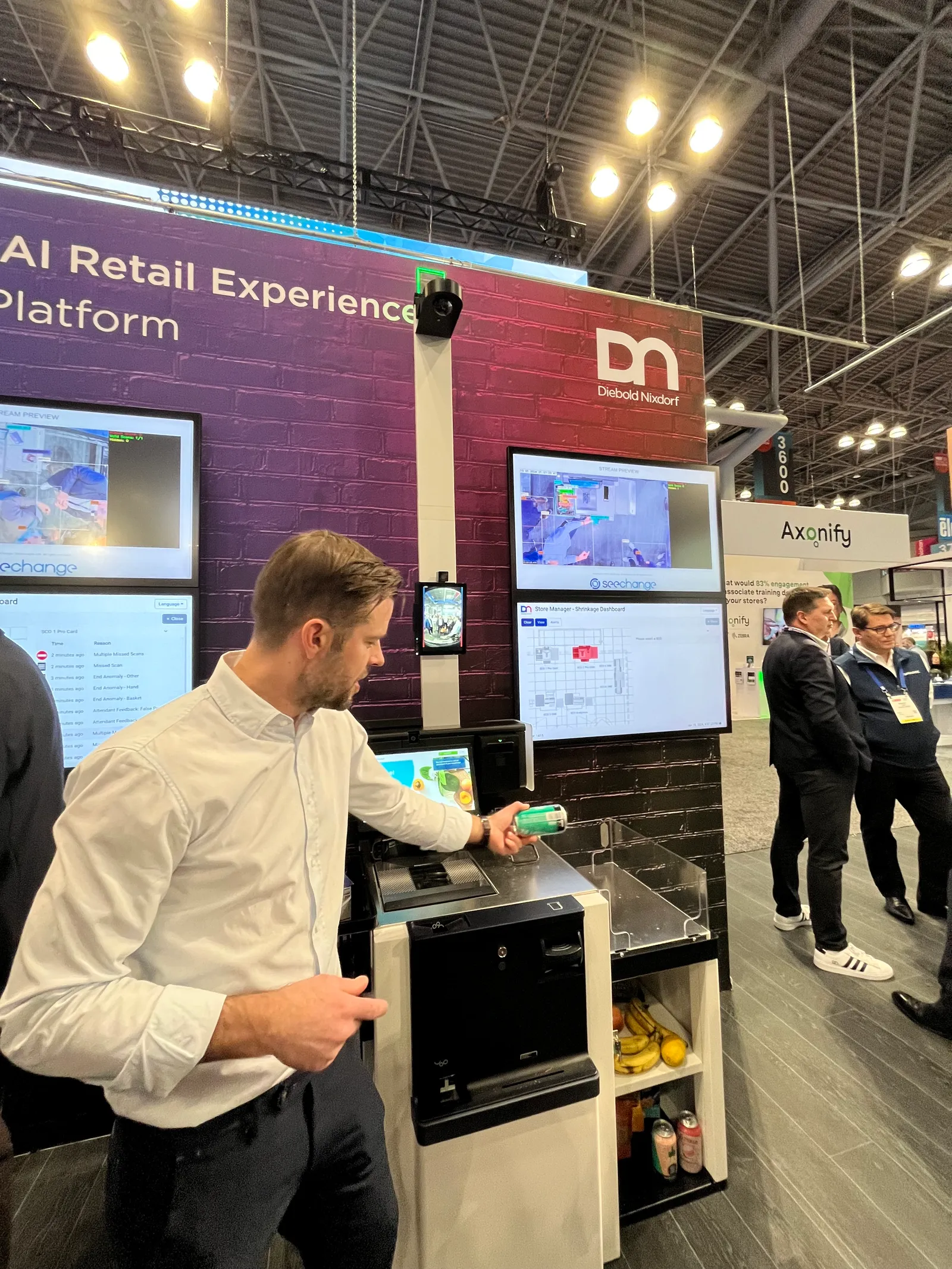
Diebold Nixdorf also offers a consumer-facing camera, which requires shopper consent to use, that can estimate someone’s age within 10 seconds to assist with the sale of age-restricted items. Its units can also identify and distinguish between fresh produce items through a combination of camera-enabled computer vision and algorithms.



